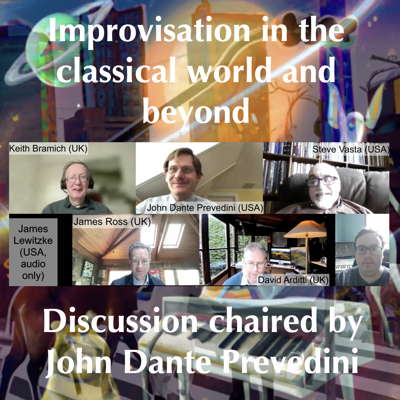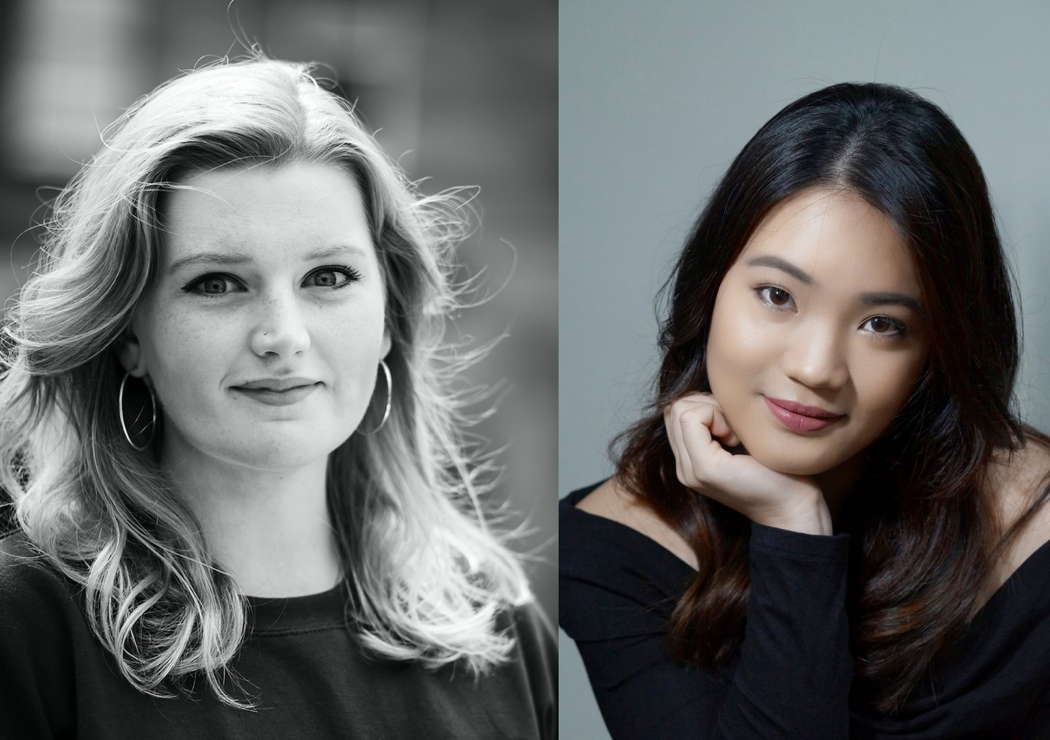- Wagner: Tristan and Isolde
- Plácido Domingo
- Philippe Gaubert
- Aubrey Bowman
- Move Records
- fourth century
- Igor Yuzefovich
- Felicity Buckland
 CENTRAL ENGLAND: Mike Wheeler's concert reviews from Nottingham and Derbyshire feature high profile artists on the UK circuit - often quite early on their tours.
CENTRAL ENGLAND: Mike Wheeler's concert reviews from Nottingham and Derbyshire feature high profile artists on the UK circuit - often quite early on their tours.
 DISCUSSION: John Dante Prevedini leads a discussion about Improvisation in the classical world and beyond, including contributions from David Arditti, James Lewitzke, James Ross and Steve Vasta.
DISCUSSION: John Dante Prevedini leads a discussion about Improvisation in the classical world and beyond, including contributions from David Arditti, James Lewitzke, James Ross and Steve Vasta.
A Welcome Opportunity
MIKE WHEELER listens to the recital 'Colour My Song' at the 2022 Buxton Festival
The Williams-Howard Prize was established earlier this year at the Royal Northern College of Music, Manchester, 'to celebrate and encourage the study and performance of art songs of composers of African heritage'. This recital, under the overall title 'Colour My Song', was given by the winners of the inaugural competition, Georgie Malcolm, soprano, and Edward Campbell-Rowntree, piano – Samuel Coleridge-Taylor First Prize – and Cherie Tse, soprano, and Mason Greenwood, piano – Avril Coleridge-Taylor Second Prize. The wide expressive range of the chosen songs was well served by these highly-promising singers and pianists, and the programme also included poetry readings by Hakeem Henderson - The Assembly Rooms, Buxton, UK, 11 July 2022.

Georgie Malcolm (left) and Cherie Tse
Among the composers were a number who have been claiming their place in music history in recent years, beginning with Florence Price's 'Night', which at times verged on the Straussian. Following Samuel Coleridge-Taylor's charmingly Edwardian 'Big Lady Moon', from his Five Fairy Ballads, Price's 'I Grew a Rose' was practically an operatic scena.
George Walker has also been emerging as a major figure over the last few years. Lilacs, a setting of Walt Whitman's elegy for Abraham Lincoln, 'When Lilacs Last in the Dooryard Bloom'd', covers a wide expressive range, from fierce declamation to quiet lament. Later, Edward Campbell-Rowntree played the middle movement, Theme and Six Variations, from Walker's Piano Sonata No 1, exploring the first variation's unexpected affinity with early Tippett, and the playfulness of the fifth.
Among less familiar (to me, at any rate) names, Undine Smith Moore's powerfully declamatory 'Love Let the Wind Cry ... How I Adore Thee' is based on a text by the classical Greek poet Sappho, Franz Hepburn is a bass-baritone - winner of TV's Operatunity in 2003 - as well as a composer. His engagingly quirky Four Words are exactly that: each one a setting of a single word, the last one given a delightfully winsome pay-off.
The two penultimate songs were arrangements of spirituals: 'This Little Light of Mine', given a somewhat over-elaborate piano part by Margaret Bonds, and Undine Smith Moore's more appropriately restrained setting of 'Come Down Angels'.
It was left to Errollyn Wallen to wrap things up quietly and calmly, with both singers joining pianist Mason Greenwood for 'Peace on Earth'. A unison setting of Wallen's own words, this was a gently swaying barcarolle that didn't need to raise its voice.
The Assembly Rooms, part of the recently-restored Buxton Crescent, is a new Festival venue, but it proved to be problematic. Its high ceiling and resonant acoustic tempted the singers to occasionally force the tone on high notes, and the pianists had a tendency to use too much pedal. The spoken introductions, and Hakeem Henderson's poetry readings, were not miked, and were addressed to the front few rows of the audience; consequently they were barely audible even half-way back. A pity, as such a welcome opportunity to sample less familiar repertoire went for less than it might have done otherwise.
Copyright © 30 July 2022
Mike Wheeler,
Derby UK



